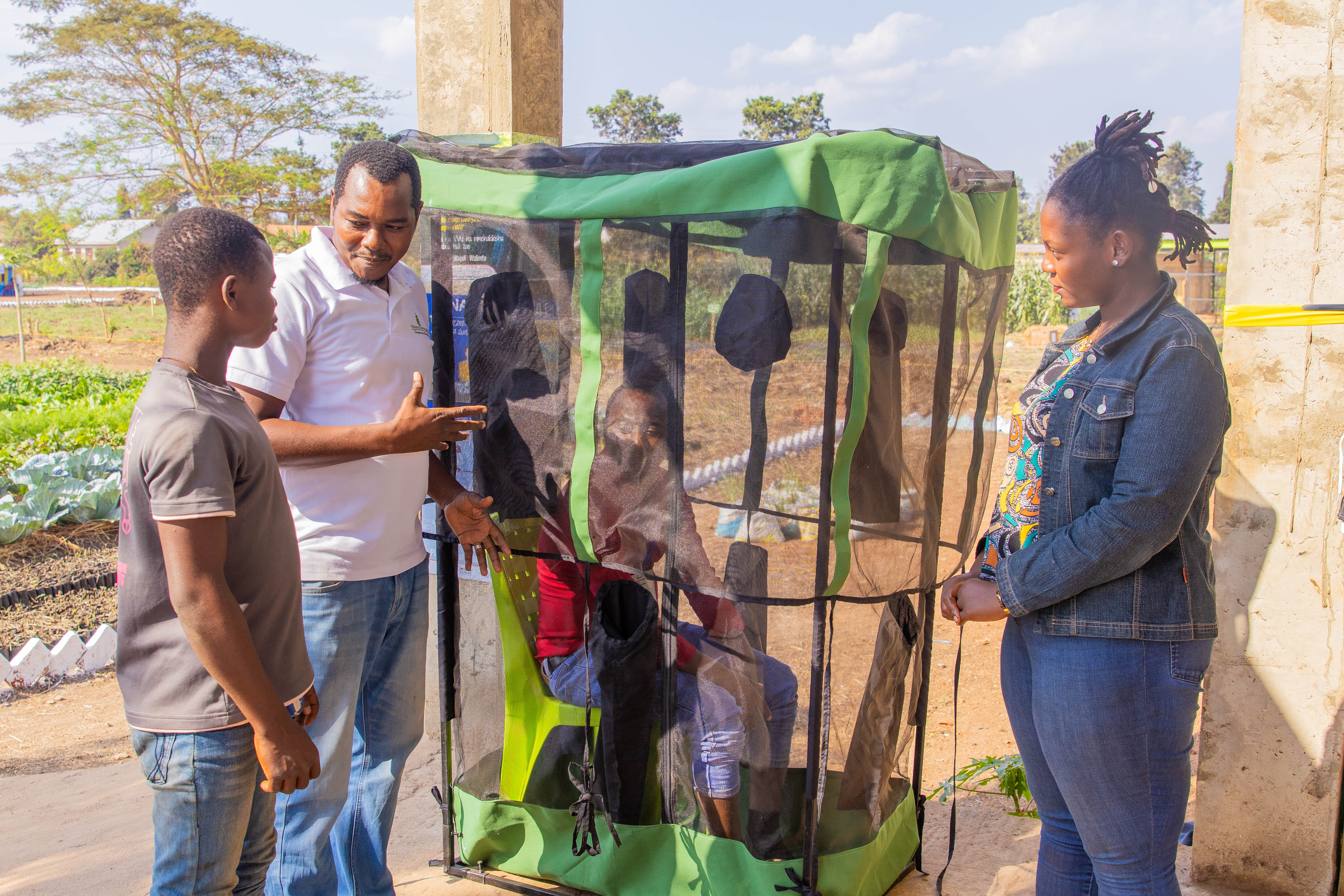
#NANENANE2024: Ifakara’s innovative mosquito trap on display

At this year’s Nane Nane commemorations, Ifakara Health Institute's scientist Alex Limwagu is showcasing his latest innovation – the Double Net Mini Trap (DN-Mini Trap) for collecting host-seeking mosquitoes. The tool, essential for malaria vector surveillance, represents a significant advancement in the field.
The Nane Nane exhibition, held at the Julius Nyerere Grounds in Morogoro from August 2 to August 8, is an ideal venue for highlighting Alex's breakthrough. The event serves as a platform for recognizing innovations and technologies that make a substantial impact on communities, not just in the agriculture sector.
For years, Tanzania has been engaged in a relentless fight against malaria. To succeed in this battle, effective sampling and surveillance tools are crucial for monitoring and informing the success of vector interventions. These tools provide a clear understanding of vector systems, essential for selecting effective measures to further reduce malaria transmission.
Development and advantages of the DN-Mini Trap
According to Alex, the DN-Mini Trap was developed to address the challenges of collecting host-seeking malaria vectors while safeguarding humans from mosquito bites. Unlike the traditional Human Landing Catch (HLC) and CDC light trap methods, the DN-Mini Trap can estimate entomologic metrics such as the Entomological Inoculation Rate (EIR) without exposing humans to infectious mosquito bites.
In 2022, Alex conducted a study titled "Efficacy of the Double Net Mini Trap for Sampling Host-Seeking Mosquitoes to Quantify Malaria Entomological Indicators at Ulanga District in South-eastern Tanzania." His study aimed to assess the malaria entomological indicators and performance of the DN-Mini trap relative to the CDC light trap.
Study proves DN-Mini trap efficacy
The study found that the DN-Mini Trap outperformed the CDC light trap in sampling the dominant malaria vector Anopheles funestus, although it was less effective in capturing Anopheles arabiensis.
“Biting risk was observed indoors rather than outdoors when measured using the DN-Mini Trap. These findings highlight the importance of selecting appropriate trapping methods based on mosquito species and behaviors.”
The findings of Alex’s study were published on the renowned PLOS ONE journal earlier this year in February 2024.
Read the publication here.
Next steps for DN-Mini Trap development, usage
Following the success of the DN-Mini Trap, Alex recommends its integration into malaria vector surveillance programs due to its proven ability to capture a high number of Anopheles mosquitoes compared to the CDC light trap.
He hopes the trap will be considered in policy-making for various malaria control programs. Additionally, Alex emphasizes the importance of communities integrating house screening (windows, doors, and eave spaces) and ITNs, along with livestock interventions like ivermectin treatment of cattle, with improved ITNs (PBO-ITN/Chlorfenapyr ITN) to reduce malaria transmission.
Looking ahead, Alex aspires to find a factory to modify and scale up the DN-Mini Trap for different settings. This, he remarks, will help “to generate more evidence on its performance and support its adoption by the National Malaria Control Programme (NMCP).”
For more photos from the event click here.
